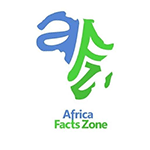Kenya’s New Taxes Spark Nationwide Protests

Kenya’s recent decision to impose a 10% import duty on crude palm oil is causing a stir, leading to a probable rise in the prices of essential items like cooking oil, soap, margarine, and cosmetics.
This move is part of a broader set of new taxes introduced by the East African Community (EAC) under Kenya’s Finance Bill 2024.
The changes are causing quite a buzz across the country. Let’s dive into the details and see what this all means for Kenya and its citizens.
Understanding the New Import Duties
What’s Happening?
Kenya has decided to levy a 10% import duty on crude palm oil. This might seem like a small number, but it has significant implications.
Crude palm oil is a crucial ingredient in many everyday products. When the cost of this raw material goes up, it trickles down to the final products we buy, meaning higher prices for items like:
- Cooking oil
- Soap
- Margarine
- Cosmetics that use glycerin
Why This Matters
Why should we care about a tax on crude palm oil? Well, these are staple products that everyone uses daily. If their prices go up, it affects our wallets directly.
Imagine going to the store and finding that the price of your favorite cooking oil has jumped significantly. That’s the reality many Kenyans might face soon.
Other Tax Changes
The Finance Bill 2024 isn’t just about crude palm oil. The East African Community (EAC) has also introduced several other tax changes:
New Duties on Electronics and Baby Products
- 35% duty on television sets: If you’ve been planning to buy a new TV, you might want to do it sooner rather than later. The price hike could be substantial.
- 25% duty on mobile phones: In a world where staying connected is crucial, this new tax might make it harder for some people to afford new phones.
- 35% duty on baby diapers for one year: This one hits hard, especially for young families. Diapers are already a significant expense, and this new tax will make them even more costly.
Also Read: Kenya Removes Visa Registration Fee for Citizens of Six African Nations
The Controversy and Criticism
Public Outcry
The new tax measures have sparked nationwide debate and protests. Many people are unhappy with these changes, and for good reason.
Higher prices on essential goods can be tough, especially for low and middle-income families.
President Ruto’s Role
Critics accuse President William Ruto of misleading the public. He claimed to have withdrawn the finance bill, but these tax changes are still being implemented through the EAC. This has led to accusations of dishonesty and has fueled calls for his resignation.
Nationwide Protests
The new taxes have led to protests across the country. People are taking to the streets, voicing their frustrations and demanding change. The government’s response to these protests will be crucial in the coming weeks.
Economic Implications
Short-Term Impact
In the short term, we can expect to see price increases on many everyday products. This will affect everyone, but it will hit low and middle-income families the hardest. Higher prices mean less money for other necessities, which can lead to financial strain.
Long-Term Consequences
In the long run, these tax changes could have broader economic implications. Higher import duties might encourage local production, but this transition takes time. Meanwhile, the immediate effect will be felt in the form of higher prices and potential economic hardship for many Kenyans.
Conclusion
Kenya’s new import duties are set to shake things up significantly. From higher prices on everyday items to nationwide protests, the implications are far-reaching.
While the government may have its reasons, it’s clear that these changes are causing concern and frustration among many Kenyans. As we navigate this new landscape, staying informed and engaged will be key to adapting and advocating for our needs.





